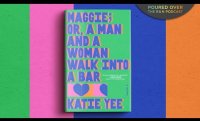Hanya Yanagihara’s 2015 novel, A Little Life, centers on the complex relationships between four college friends: Jude, Willem, JB, and Malcolm. JB, a painter, begins a new series of portraits based on his friends, working from memory. When he paints Jude, his enigmatic friend with whom he’s grown distant, he claims it’s a tribute. However, the portrait depicts Jude mid-stumble, highlighting the distinctive walk caused by his lifelong injuries and trauma, and the image is widely seen as exploitative by their friends. This moment marks a betrayal and demonstrates how attempting to capture another person’s essence, even someone you love, can sometimes be dangerous. Write a story about a narrator trying to understand someone they were once close with, perhaps a sibling, friend, or lover. What image do they want to believe? What truths remain unseen?













